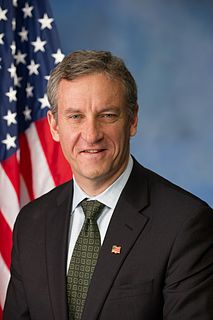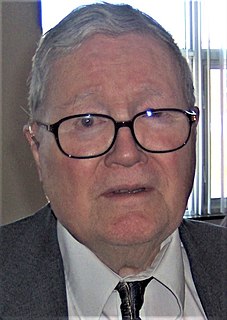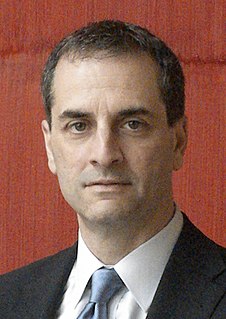A Quote by Frans van Houten
Government should seek more strategic approaches to developing dynamic, resilient infrastructure. Business must be more creative in offering financing solutions as partners with government, and people must support sustainable innovation as a public policy priority.
Related Quotes
The more I do this creative work teaching the "Personal Creativity in Business" course at Stanford the more I realize that business is about people in groups being creative in their own way. If business creativity does not allow individual development, then it isn't sustainable. But if business creativity means people bringing out their best and developing that, then amazing things can happen - not only for the business but also more importantly for the individual and the surrounding community.
A much more radical conclusion . . . that, so far as I know, is shared by only a very few students of public choice [is]: that government employees or people who draw the bulk of their income from government by other means should be deprived of the vote . . . It is another example of the opening up of alternatives for investigation and the presentation of new conceivable policy options characteristic of public choice, rather than a policy that all its students favor.
Our children should learn the general framework of their government and then they should know where they come in contact with the government, where it touches their daily lives and where their influence is exerted on the government. It must not be a distant thing, someone else's business, but they must see how every cog in the wheel of a democracy is important and bears its share of responsibility for the smooth running of the entire machine.
Government is not infallible. Government is only an executive control, a centralized authority for the purpose of expressing the will of the people; before you have a government you must have the people. Without the people there can be no government. The government must be, therefore, an expression of the will of the people.
RTE was set up by legislation as an instrument of public policy, and, as such is responsible to the government. The government have overall responsibility for its conduct, and especially the obligation to ensure that its programmes do not offend against the public interest or conflict with national policy as defined in legislation. To this extent the government rejected the view that RTE should be, either generally or in regard to its current affairs programmes, completely independent of government supervision.
I would like to see transparency become the default for the American government: Abolish the Freedom of Information Act so we don't have to ask government for information but government must ask to keep information from us. The more transparent government is, the more collaborative it can become. The more our officials learn to trust us - with information and a role in government - the more we can trust them.
We're just trying to end illegitimate government support for a single technology, which is un-American. We should be leading the world in the next generation of technological innovation. But we can't unleash private capital because of what the government is doing to stifle innovation and to choke competition.
Hillary Brown understands that?for our grandchildren's sake?we must rebuild America and, in doing so, re-imagine our interconnected infrastructure systems to make them more efficient, environmentally safe, and resilient in this age of global urbanization. This fascinating and important book should be required reading for our elected officials and policy-makers.


































